Advertisements
Chapters
1.2: A Burglary Attempt
1.3: Can You Know People You Haven't Met
2.1: The Final Flight
2.2: The Sound of the Shell
2.3: Ordeal in the Ocean
3.1: The Indian Rhinoceros
▶ 3.2: Save Mother Earth
3.3: Save the Tiger
4.1: Radio Show
Chapter 4.2: Video Show
5.1: Bermuda Triangle
5.2: The Invisible Man
5.3: The Tragedy of Birlstone
5.4: Harry Potter
6.1: Tom Sawyer
6.2: Children of India
6.3: Children of Computer
6.4: Life Skills
6.5: We are the World
7.1: Grandmaster Koneru Humpy Queen of 64 Squares
7.2: It's Sports Day
7.3: Hockey and Foodball
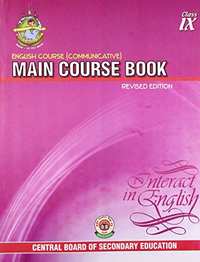
Advertisements
Solutions for Chapter 3.2: Save Mother Earth
Below listed, you can find solutions for Chapter 3.2 of CBSE CBSE for English Communicative - Main Course Book Interact in English Class 9.
CBSE solutions for English Communicative - Main Course Book Interact in English Class 9 3.2 Save Mother Earth Exercise [Pages 54 - 63]
Listen carefully to 'Meet the personality of the month programme' read out by teacher/ student from the page no 167 and as you are listening fill in the details.
ENVIRONMENTALIST: Mr Manu Srivastava
Causes of pollution
1. Atmosphere
|
a__________________ |
2. water
|
a___________________ |
3. Effects of pollution
| a________________ _________________ b________________ ________________ |
Human Rights activist- Ms.Shraddha Shankar
Reasons for working in the factory
| a. ____________________________________________________ ______________________________________________________ |
Effects
| a________________ _________________ b________________ _________________ c________________ _________________ |
Steps which can be taken
| a________________ _________________ b________________ _________________ c________________ _________________ |
The residents of Kanpur decide to approach the Chairman of the Municipal Steps which can be taken problem of pollution in their city. In groups of six, play the role of the following : (Cue cards may be given by the teacher)
• A farmer
• An environmentalist
• Chairman of the Municipal Corporation
• President of 'Save the Ganga Project'
• A Human rights activist
After the role play, the Chairman will put forward the final decision with reasons.
As a resident of Kanpur, write a formal letter to the Editor of a prominent newspaper highlighting the problem discussed in Question 2. Also give some suggestions on how this problem can be reduced.
|
FORMAL LETTER A-43 Civil lines |
India's Major concerns
Read the following paragraph. Then work in pairs and list the different ways in which you can contribute to save Mother Earth. As an individual you can make a major contribution towards reducing India's over all emission level.

How to save the Environment at Home
There are plenty of small steps that people can take at home to help save the environment. While the eco-footprint of each step is small, thousands of people doing the same thing can make a difference. In making some small changes to the way that you do things at home, you are gradually making a difference, even as an individual. You will kill costs and improve your health at the same time, so helping to save the environment isn't an entirely altruistic exercise after all!
|
SAVE MOTHER EARTH CAMPAIGN |
Read the following article on Global Warming and complete the Dow chart given below.
Global Warming is caused by the accumulation of Green house Gases - C02, and methane in the atmosphere, resulting in the rise of Earth's over all surface temperature. India, a low latitude country, would face much of the misery due to climatic changes. Rainfall pattern is expected to undergo a major change in areas like Kerala, MP and North East.
Himalayan glaciers are melting. This could prove catastrophic for those living downstream in the plains.
Due to global warming heat is trapped in the atmosphere causing the ice to melt. Rising sea levels would inundate many of the coastal cities. Extreme weather conditions such as heavy rainfall is expected to occur soon resulting in loss of life and property.
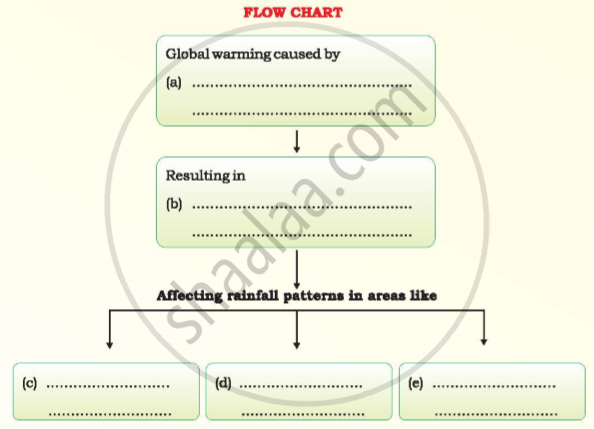
Carbon Footprint - Project Work
A carbon footprint is a representation of the effect human activities have on the climate in terms of the total amount of greenhouse gases produced (measured in units of carbon dioxide). So, it is a measure of the impact we make individually on the earth; by the choices we make regarding our lifestyle. Many activities generate carbon emissions, which contribute towards accelerating global warming and climate change.
Total carbon footprint/ emission quantification would include energy emissions from human activities - such as, from heat, light, power and refrigeration and all transport related emissions from cars, freight and distribution.
By measuring the carbon footprint through such tools as carbon calculators, we can get a better sense of what the individual impact is and which parts of our lifestyle deserve strict regulation.
In groups, choose and research any one aspect of how we are leaving carbon footprints and how can we modify our lifestyle. Each group will then make a project on the various aspects.
Read the following excerpts from newspapers on various environmental issues.
Ban the Bag
The Indus Valley Civilisation left beautifullycrafted pottery that speaks volumes of the advances its people made. After 3,000 years, if the ruins we leave behind are excavated, chances are only plastic bags would be dug up. It may sound like an exaggeration, but these bags are not biodegradable. Apart from causing emissions when these are manufactured, noxious fumes are released while these are being burnt or disposed off. So, be kind to Mother Earth the next time you go shopping for groceries, remember to carry a cloth bag with you.

What India Should Do
India has released the National Action Plan on Climate Change. Is it adequate? Is there more that the country can do? Here are some ways how we can make a difference.
(a) SOLAR MISSION
1) To promote the use of solar energy through solar photovoltaic and thermal systems for power generation .
2) To integrate other renewable energy technologies like biomass and wind. 
(b) ENERGY EFFICIENCY
1) To mitigate GHG through sector-specific and cross-cutting technology and fuel switch options.
2) To use more LNG and biomass fuels besides seeking tech transfer. 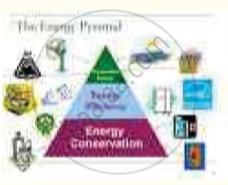
(c) SUSTAINABLE HABITAT
1) To promote energy efficiency in the residential and commercial sectors through LPG use.
2) To manage municipal solid waste and urban public transport in a better way. 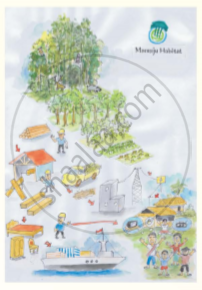
(d) WATER MISSION
1) To promote efficient water use, augment supply in critical areas and ensure effective management of water resources.
2) To have better management of surface and groundwater,and conserve wetlands. 
(e) SUSTAINING HIMALAYAS
1) To enhance monitoring and conservation of the Himalayan ecosystems, empower local communities for management of ecological resources and promote sustainable tourism. 
(f) GREEN INDIA
1) To reduce fragmentation of forests, enhance public and private investments for plantation, upscale joint forestry management and promote conservation of biodiversity. Need to afforest degraded lands.
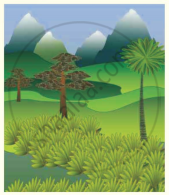
(g) SUSTAINABLE AGRICULTURE :
1) To focus on four crucial areas - dry land agriculture, risk management, access to information and promoting the use of biotechnology.
2) To develop drought and pest resistant varieties. 
In groups, work on one of the topics mentioned in 8(a)-(g). Research your topic by collecting relevant articles from the print and electronic media (like the National Geographic). Make a power point presentation of 10-12 minutes. You can also use film clippings to enrich your presentation.
(a) SOLAR MISSION
1) To promote the use of solar energy through solar photovoltaic and thermal systems for power generation .
2) To integrate other renewable energy technologies like biomass and wind. 
(b) ENERGY EFFICIENCY
1) To mitigate GHG through sector-specific and cross-cutting technology and fuel switch options.
2) To use more LNG and biomass fuels besides seeking tech transfer. 
(c) SUSTAINABLE HABITAT
1) To promote energy efficiency in the residential and commercial sectors through LPG use.
2) To manage municipal solid waste and urban public transport in a better way. 
(d) WATER MISSION
1) To promote efficient water use, augment supply in critical areas and ensure effective management of water resources.
2) To have better management of surface and groundwater,and conserve wetlands. 
(e) SUSTAINING HIMALAYAS
1) To enhance monitoring and conservation of the Himalayan ecosystems, empower local communities for management of ecological resources and promote sustainable tourism. 
(f) GREEN INDIA
1) To reduce fragmentation of forests, enhance public and private investments for plantation, upscale joint forestry management and promote conservation of biodiversity. Need to afforest degraded lands.

(g) SUSTAINABLE AGRICULTURE :
1) To focus on four crucial areas - dry land agriculture, risk management, access to information and promoting the use of biotechnology.
2) To develop drought and pest resistant varieties. 
Solutions for 3.2: Save Mother Earth

CBSE solutions for English Communicative - Main Course Book Interact in English Class 9 chapter 3.2 - Save Mother Earth
Shaalaa.com has the CBSE Mathematics English Communicative - Main Course Book Interact in English Class 9 CBSE solutions in a manner that help students grasp basic concepts better and faster. The detailed, step-by-step solutions will help you understand the concepts better and clarify any confusion. CBSE solutions for Mathematics English Communicative - Main Course Book Interact in English Class 9 CBSE 3.2 (Save Mother Earth) include all questions with answers and detailed explanations. This will clear students' doubts about questions and improve their application skills while preparing for board exams.
Further, we at Shaalaa.com provide such solutions so students can prepare for written exams. CBSE textbook solutions can be a core help for self-study and provide excellent self-help guidance for students.
Concepts covered in English Communicative - Main Course Book Interact in English Class 9 chapter 3.2 Save Mother Earth are Reading, Writing and Grammar, Literature Textbook and Extended Reading Text.
Using CBSE English Communicative - Main Course Book Interact in English Class 9 solutions Save Mother Earth exercise by students is an easy way to prepare for the exams, as they involve solutions arranged chapter-wise and also page-wise. The questions involved in CBSE Solutions are essential questions that can be asked in the final exam. Maximum CBSE English Communicative - Main Course Book Interact in English Class 9 students prefer CBSE Textbook Solutions to score more in exams.
Get the free view of Chapter 3.2, Save Mother Earth English Communicative - Main Course Book Interact in English Class 9 additional questions for Mathematics English Communicative - Main Course Book Interact in English Class 9 CBSE, and you can use Shaalaa.com to keep it handy for your exam preparation.
